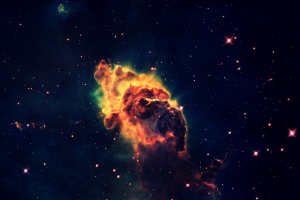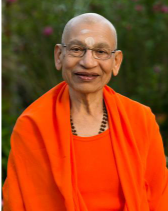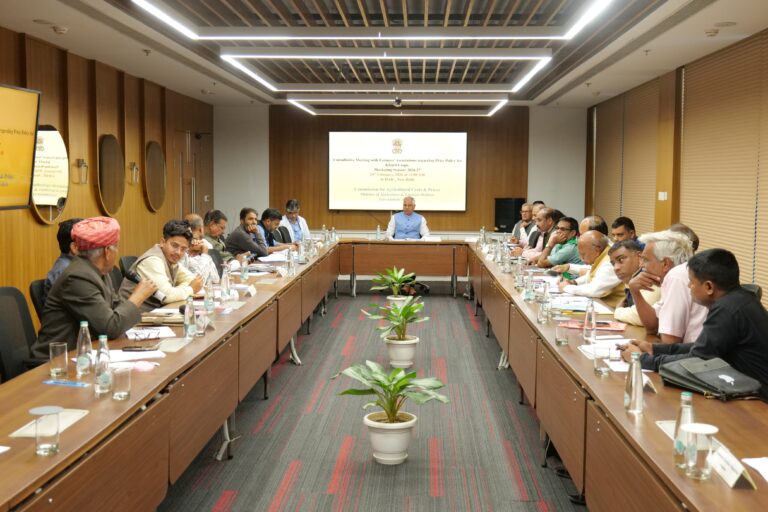
Spirituality: Works of avatāra

By Swami Viditātmānand Saraswati*
Also, to re-establish dharma is also an equally important work of avatāra. Śrī Rāma re- established dharma by setting an example by practising dharma whereas Śrī Kṛṣṇa did that by practising dharma and also teaching it. The description of the dialogue of Bhagavad Gītā, the didactical dialogues of Mahābhārata and other purāṇas are also important works of avatāra.
Gracing the devotees is also included in the protection of the saints/virtuous people. Bhagavān takes birth by being subdued to the love and prayers of devotees. Manu and Śatarupā pleased Bhagavān by doing a lot of penance and asked for a boon that Bhagavān take birth as their son. In this manner, Śrī Rāma took birth as a son to Daśaratha and Kauśalyā. Similarly, wouldn’t He have to take birth to satisfy the parental affection of Yaśodā, love of gopis, friendship of people like Arjuna etc.? Bhagavān could possibly destroy the evil just by his resolve but He has to take birth to grace devotees in this manner.
An important reason to accept avatāra is also that there is a spiritual avatāra of Bhagavān. Bhagavān resides in the form of ātmā in the heart; however, He is as though unattained due to the cover of ignorance. Whenever a curious devotee completely surrenders to know Him, his mind is always in Him, his actions are only for Him, He is the only centre of the devotee’s life, then, due to compassion, He incarnates in the devotee’s antaḥkaraṇa. Nirviśeṣa nirvikāra paramātmā becomes the object of knowledge of the jijñāsu in the form of ātmā by conforming to jñānavṛtti (knowledge instinct). In ādhibhautika avatāra, Bhagavān takes on some upādhi, similarly, in ādhyātmika, avatāra at an individual level, He establishes on jñānavṛtti, becomes an object from the subject and in that manner, graces the devotee. Whenever Bhagavān gives darśana (reveals Himself) by gracing the devotees, it is His ādhyātmika avatāra.
If we do not accept such ādhyātmika avatāra of Bhagavān, how can we gain the knowledge of that sarvātīta (Transcendental) and nirviśeṣa (unqualified) Bhagavān? Therefore, avatāra is a very important principle and by respecting the prayers of devotees, in all eras, whenever there is a need, Bhagavān manifests in an appropriate form and protects devotees. This is also a subject of the experience of devotees. Moreover, with this principle of avatāra, it is also proven that there is such an order in the creation of the universe that whenever samaṣṭi, a group is in need, such a factor arises that it relieves the victims from the torture. Therefore, there is a place of hope in life. We are not support-less, there is someone who cares for us, and protects us. Only prayer is needed at our end.
Both the birth and karma of Bhagavān are divine. He as though takes birth without taking birth and in reality, without performing karma, he is performing karma. That means, there is no doer-ship in his karma. Here Bhagavān says: “neither karma besmears me nor I have any craving for the results of karma.” This is the divinity of karma where there is no pride of ‘I am doing’, there is no bias or rāga-dveṣa. Neither there is dveṣa in the carnage of evil nor rāga in the protection of the virtuous. He is theātmā of all virtuous and evil.
Many times, a question is raised that Bhagavān took the side of Pāṇḍavas and had warriors of Kauravas killed by sacrificing the rules of the war. Is Bhagavān not biased in this?
There is a description in Mahābhārata, Uttarā’s fetus got killed by the brahmāstra shot by Aśvatthāmā at an event of destruction of the Kuru lineage. At that time, Bhagavān took a vow that during the war of Kurukṣetra if no hatred or bias arose in my mind, the dead fetus of Uttarā should come back to life and it did. The child born out of that fetus was named Parikṣita. In this way, the goal of describing the importance of the avatāra of Bhagavān is that we understand the secret of His birth and karma. If we understand that, we will be able to understand the secret of our own birth and karma because ātmā also as though takes birth and performs karma. The birth of the body is considered the birth of ātmā and the doer who is doing karma with the upādhi thinks of himself as ātmā. This is a delusion. Just as Īśvara is birthless, indestructible, independent, ever free; similarly, ātmā is also the same. Therefore, by understanding the secret of Īśvara, avatāra, we understand our own, ātmā’s secret that ātmā also as though takes birth but not in reality. This is the divinity of birth. Also, there is no doer-ship or attachment of ātmā even when karmas are getting performed. This is the divinity of karma. If ātmā is understood in this manner, the wise do not get bound by karma and he does not need to take rebirth after leaving the current body. He becomes free.
*Swami Viditātmānand Saraswati has been teaching Vedānta Prasthānatrayī and Prakaraṇagranthas for the last 40 years in Ahmedabad, Gujarat. Throughout the year, he conducts daily Vedānta discourses, accompanied by retreats, and Jñāna Yajñas on Vedānta in different cities in India and in foreign countries.





